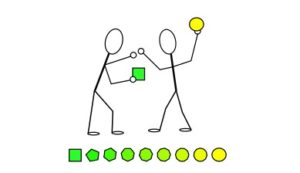Where is the Representation in Passing a Bill Nobody Read?
Congress passed a bill spending trillions of dollars and implementing new laws and regulations, but who actually read the bill before voting to pass it? We can infer very few members of Congress read the bill, given these statements on Twitter.
Rep. Chip Roy of Texas stated, “They gave us 5,600 pages of legislation to vote on in a matter of hours. A $2.4T bill that nobody has time to read, so we can fund things that will harm our country & economic recovery. This is not the way to do business. We need a clean small business bill to protect jobs.”
Rep. Alexandria Ocasio-Cortez of New York stated, “This is why Congress needs time to actually read this package before voting on it. Members of Congress have not read this bill. It’s over 5000 pages, arrived at 2pm today, and we are told to expect a vote on it in 2 hours. This isn’t governance. It’s hostage-taking.”
Senator Ted Cruz of Texas complained as well, stating “It’s ABSURD to have a $2.5 trillion spending bill negotiated in secret and then—hours later—demand an up-or-down vote on a bill nobody has had time to read.” Senator Cruz tweeted that statement in agreement with an earlier statement by Representative Ocasio-Cortez on the subject, in which she posted, “Congress is expected to vote on the second largest bill in US history *today* – $2.5 trillion – and as of about 1pm, members don’t even have the legislative text of it yet.”
Senator Ted Cruz and Representative Alexandria Ocasio-Cortez are in agreement. Let that soak in a moment.
Rep. Ocasio-Cortez followed up by tweeting, “And by the way, it’s not just members who need to see the bill ahead of time – YOU do. The PUBLIC needs to see these bills w enough time to contact their rep to let them know how they feel. Members are reeling right now bc they don’t have time to consult w/ their communities.”
Rep. Tim Burchett explains, “…We were not allowed to read or review the bill as it was written. That is only done by leadership.”.
Now that the bill has passed the House and the Senate, you may read its contents in PDF form here.
It appears individual representatives submitted snippets of legislation to a central working group, the central working group chose what snippets to mash together into a bill, and the group pushed a more than 5500 page bill to the House floor for a vote a few hours later.
I will get to the bill contents in a later post, once people have had time to actually read the contents. The focus of this post is the fact that Congress passed a two point four trillion dollar spending bill and created new laws with most members of Congress voting to pass it without ever having read it.
This is how Congress works. What happened was not a fluke or a rare event. It was a strategic strike. The chosen few embedded a wildly popular section in the bill, making rejecting the bill too politically costly for most members of Congress, and released the bill to the House floor right before the House adjourned for its holiday break, leaving no time to introduce alternatives. Backed into a corner, the majority voted to approve the bill. Then they read the bill.
Does this meet your definition of "representation"?
To be clear, the Representation Amendment offers no specific remedy for this issue. The Representation Amendment establishes the rules governing how Senators and Representatives are elected. Nothing more. However, the book, The Representation Amendment (Because we don’t have enough people in Congress and the people already there are the wrong ones), delves into how the House of Representatives functions with thousands of members. The book offers a solution to this inexcusable act of ramming unread legislation through the House.
The existing House of Representatives rules allow people in leadership to write a 5500 page bill in secret and foist it upon the House membership for an up or down vote with little time to read the text of the bill. Rules can be changed, but often rules in a long-standing institution like the House are seemingly chiseled in stone. The Representation Amendment is the type of shock to the system that offers people an opportunity to rewrite rules like these.
The Representation House as detailed in the book has many thousands of members maintaining offices in districts across multiple time zones. Any House member may submit legislation and through an internal filtering system, a small percentage of proposed legislation comes to the floor for a vote. All the legislation is debated in public by all members of the House, and with few rare exceptions no legislation goes to the floor of the House for a vote without a delay long enough for all interested parties to digest the text of the legislation.
One flaw in the current system is that the House is held hostage to a single bill. Why cannot any member submit a bill for financial relief for families affected by the COVID-19 business disruptions? I think that even if all 435 members of the House of Representatives each submitted one emergency relief bill in July and had to negotiate those 435 bills down to a single bill the majority of congresspeople could support, they could have been done in less time than it took to get this one bill done. As a bonus, the American people would know the contents of every version of the bill along the way.
Whether the bill had more or fewer new regulations or laws is beside the point, as those regulations and law will have been vigorously debated in public along the way. Those who represent the American people will have come to a point of agreement organically. No surprises. We would not be reading tweets from senators and representatives upset about being ambushed with a $2.4T emergency spending bill.
Read the book. See what could be. This is not right.







